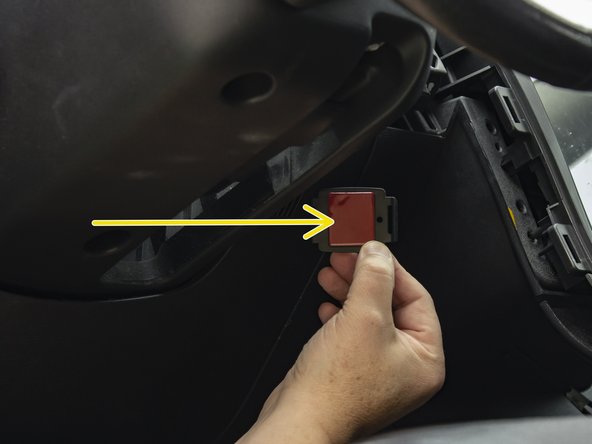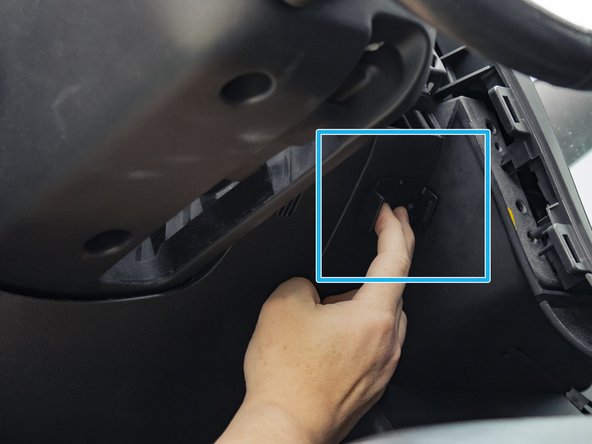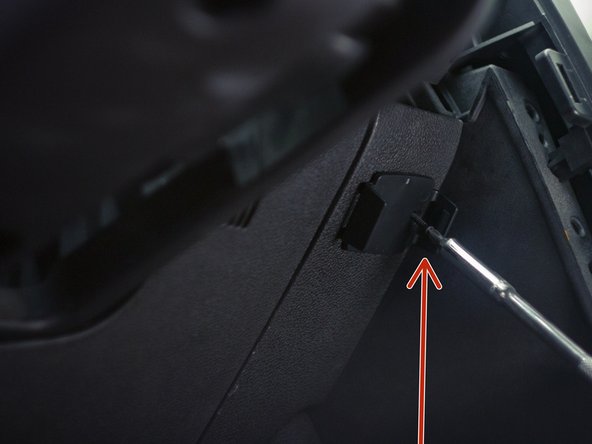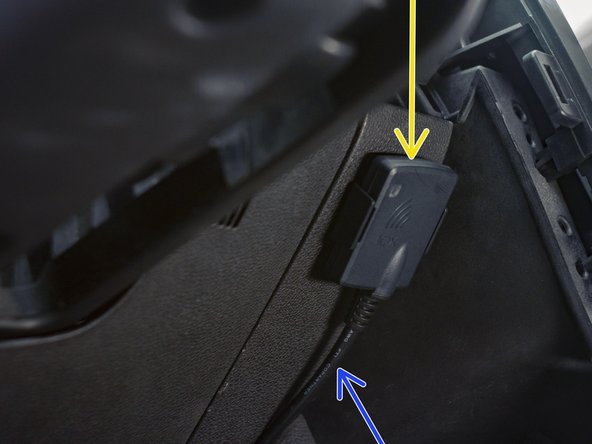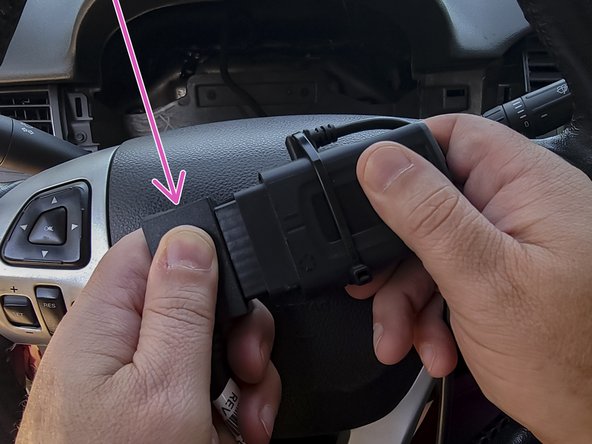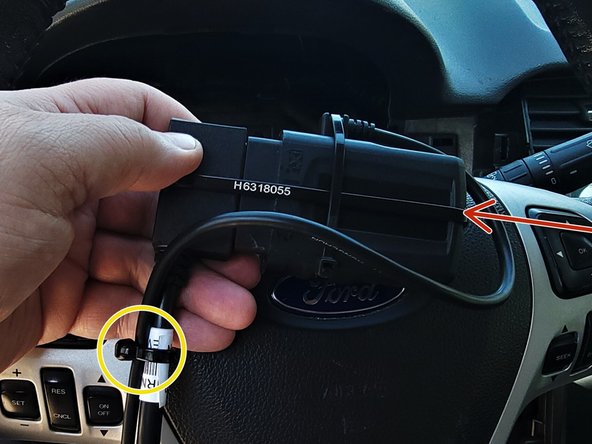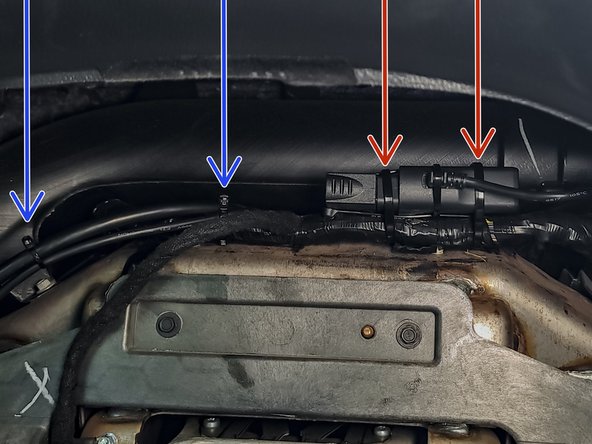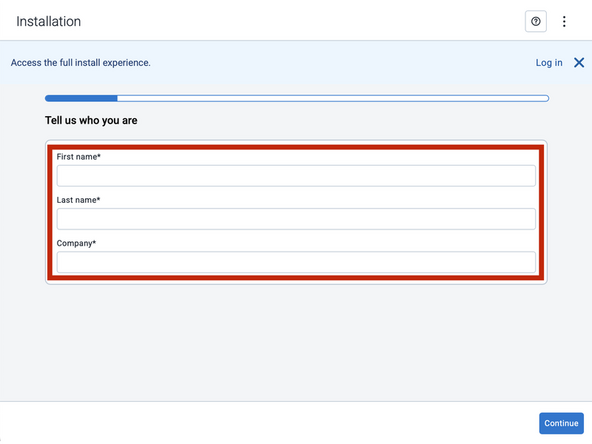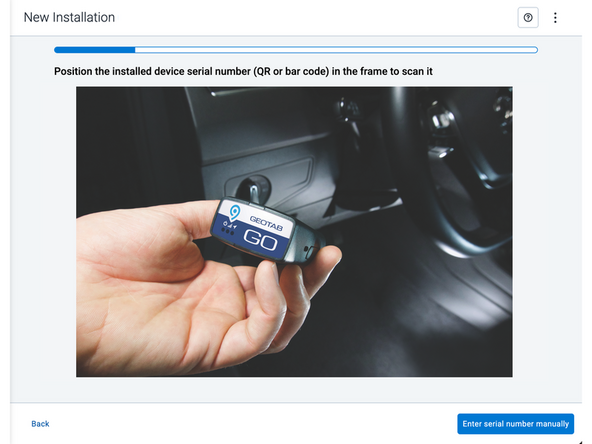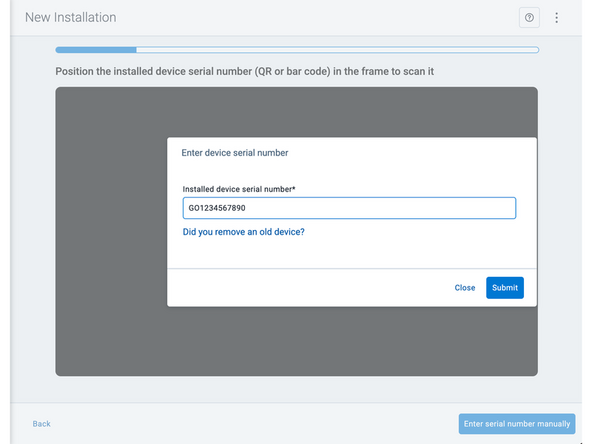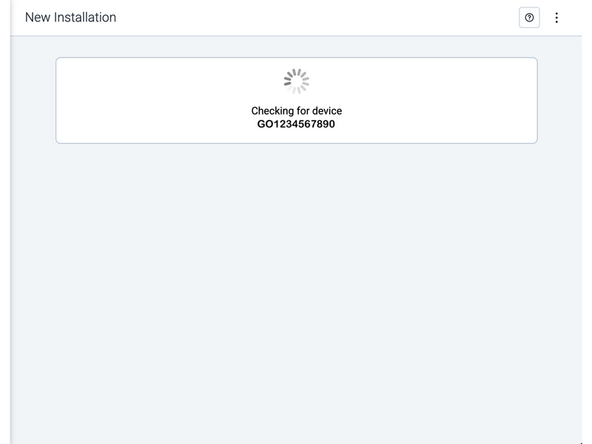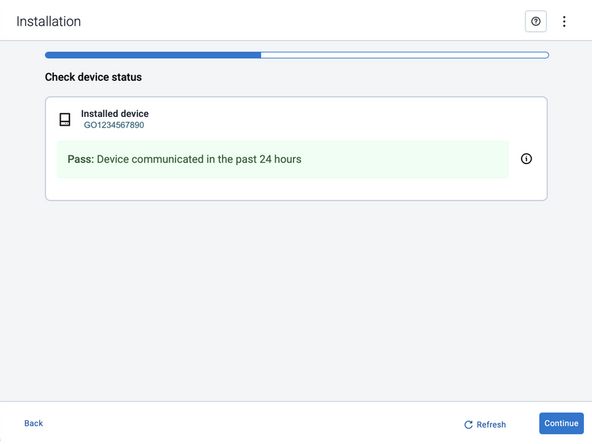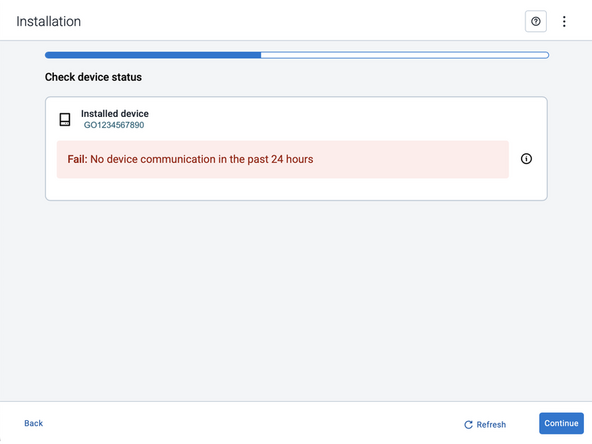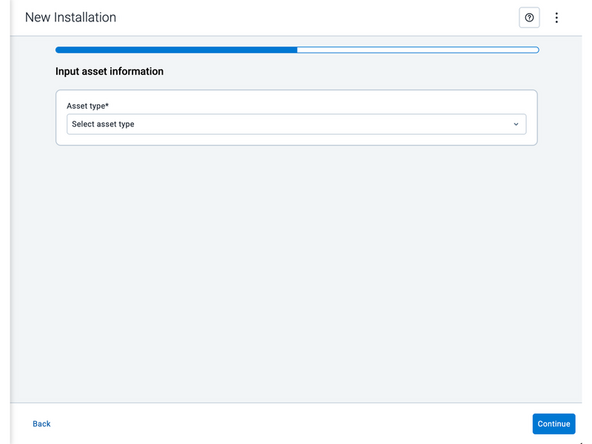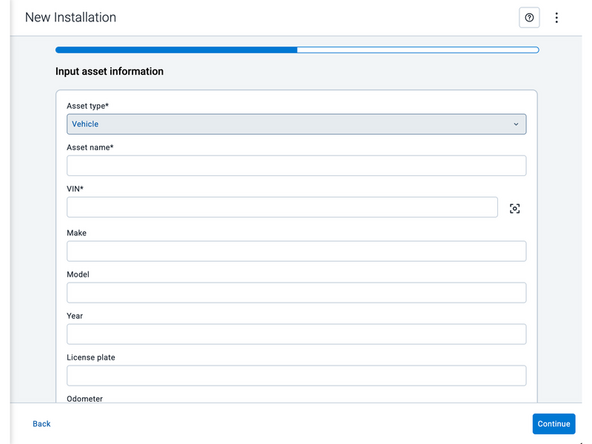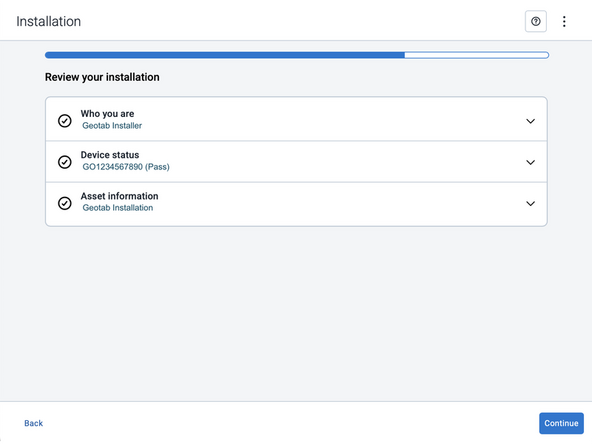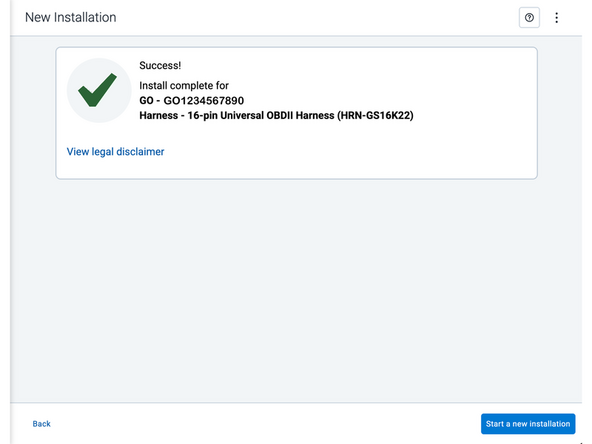Recommended Tools & Consumables
Hardware & Accessories
Video Overview
-
-
Before starting the installation, ensure the Geotab GO device is unplugged from the vehicle.
-
-
-
Locate and identify a location to mount the NFC reader.
-
Exposed cable should be kept to a minimum.
-
It is recommended that you review and confirm the location with the customer and/or operator prior to installation.
-
Prepare the surfaces (the mounting location on the vehicle, and the bracket) using an isopropyl alcohol prep wipe (not included).
-
-
-
If you are not using the included screws (for example, if the customer does not want to drill holes in the dash), we recommend you also use an adhesive promoter (not included) when bonding to plastics.
-
Apply adhesive pad to the included bracket.
-
When bonding the bracket to your mounting location, apply firm pressure for approximately 30 seconds to ensure a proper bond.
-
-
-
Please see this support page if using the additional SPR-RELAYKIT for circuit interrupt solutions.
-
Please see this support page when connecting additional IOX devices to an IOX-NFCREADERA.
-
-
-
Remove the rubber cover on the GO device to expose the IOX port.
-
Plug the IOX cable into the GO device.
-
Important: you must plug IOX devices into the GO device BEFORE powering up the GO device.
-
-
-
Turn on the vehicle ignition.
-
Verify the LED pattern.
-
The device emits 2 quick beeps every 60 seconds during setup. When setup is complete, all three LEDs turn solid and the device emits 10 quick beeps.
-
-
-
Route the device and harness to the mounting location as needed. The mounting location should have as clear a line of sight to the sky as possible (for cellular/GPS connectivity). Lines of sight through plastics, glass, and composites are generally acceptable.
-
Ensure cable does not interfere with any moving parts.
-
Secure harness as needed with cable ties.
-
Secure the device using 2 cable ties.
-
To ensure reporting quality, the device must be secured with no free movement!
-
Device must NOT be secured such that the bottom side is in direct contact with metal!
-
-
-
All in-vehicle devices and related cabling must be securely fastened and kept clear of all vehicle controls, airbags, and gas, brake and clutch pedals.
-
This requires the use of a cable tie when securing the device or any extension harness to the OBD connector, securing both sides of the harness. If you do not use a cable tie, vibration in the vehicle can lead to a loose connection which could cause the vehicle’s engine computer to fail, causing potential loss of vehicle control and serious injury.
-
Inspect devices and cabling regularly to ensure all devices and cabling continue to be securely attached.
-
If at any point after an in-vehicle device is installed a warning light illuminates on the vehicle dash or the vehicle stalls or has a marked drop in performance, shut off the engine, remove the device, and contact your reseller. Continuing to operate a vehicle with these symptoms can cause loss of vehicle control, and serious injury.
-
-
-
Navigate to one of the following:
-
-
-
Note that the following steps are for the public version of MyInstall.
-
If you have an installer MyAdmin account, use this link
-
This link is also accessible via the MyInstall Public page.
-
-
-
Two options are available to enter the device serial number:
-
Scan the device serial number (QR or barcode) using your mobile device.
-
Press Enter serial number manually, enter the serial number, and then press Submit.
-
If you are also removing an old device, press Did you remove an old device? and then enter the removed device serial number.
-
MyInstall takes a moment to check the device status.
-
-
-
Installed device
-
Pass – The device has successfully communicated with the network in the last 24 hours.
-
Fail – The device has not communicated with the network in the last 24 hours.
-
If the device status shows as FAILED, verify the LED status and turn the ignition / engine off and on again.
-
Press Refresh to check the status again.
-
Refer to the MyInstall User Guide for detailed instructions.
-
-
-
Asset name — Enter the vehicle or asset name. This field is mandatory.
-
VIN — Scan or enter the vehicle identification number (VIN). For scanning, select the scan icon [O] beside the field. This field is mandatory.
-
Make, Model, and Year — This information will be auto populated when you scan or enter a valid VIN. If it is not autopopulated, enter the information manually. NOTE: For some vehicle makes and models, the autopopulate option might not be possible.
-
License plate — Enter the vehicle license plate.
-
Odometer (GO device only) — Enter the vehicle odometer, and select the measurement unit (km or miles).
-
Engine hours (GO device only) — Enter the vehicle engine hours.
-
Camera ID (GO device only) — Scan or enter the installed camera identification (ID) number. NOTE: Depending on the camera type, the camera ID number can also be the camera’s International Mobile Equipment Identity (IMEI), or serial number. Select the information icon ⓘ to learn more about your camera’s ID number.
-
Work order reference — If applicable, enter a work reference number that is associated with the installation.
-
-
-
For the latest version of the Limitations of Use, please visit: http://goo.gl/k6Fp0w
-
Your in-vehicle devices must be kept clear of debris, water and other environmental contaminants. Failure to do so may result in units malfunctioning or short-circuiting, which can lead to a fire hazard and cause loss or serious injury.
-
This product does not contain any user-serviceable parts. Configuration, servicing, and repairs must only be made by an authorized reseller or installer. Unauthorized servicing of these products will void your product warranty.
-
The simplified EU declaration of conformity referred to in Article 10(9) shall be provided as follows:
-
Hereby, Geotab (Address: 2440 Winston Park Drive, Oakville, Ontario L6H 7V2, Canada, Phone number: 1 (877) 436-8221) declares that the radio equipment type ‘telematics device’ is in compliance with Directive 2014/53/EU. The full text of the EU declaration of conformity is available here.
-
WARNING: Cancer and Reproductive Harm
-


